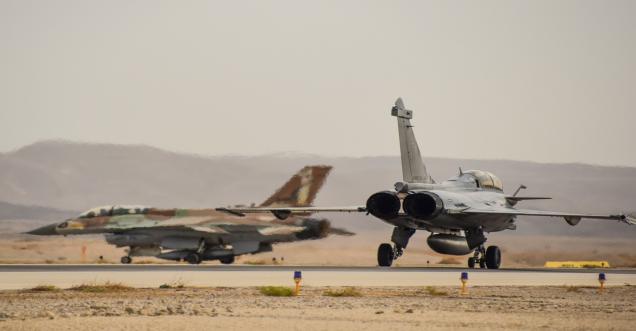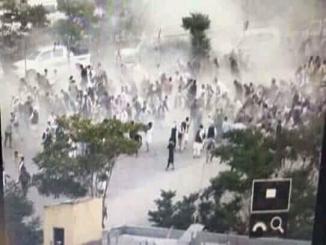
Everything there is to know about blue flag 2021
Israel is holding its largest and most advanced air exercise ever joined by seven countries including India, France the United States, Germany and the United Arab Emirates. The exercise named blue flag is underway in Israel's Negev desert.
Israel has held the blue flag exercises every two years since 2013.
This year more than 70 fighter jets, including mirage 2000s, Raphael's and f-16s and about 1500 personnel are participating in the drill.
The two-week exercise that will end on October 28th marks several firsts. It's the first time a British fighter squadron has been deployed to Israel, since the establishment of the country. it's the first time an Indian mirage fighter squadron has been deployed to Israel as well. The first time a French raffle fighter squadron has been deployed to the country.
#BlueFlag2021 Takes Off 🇮🇱🇩🇪🇮🇹🇬🇧🇫🇷🇮🇳🇬🇷🇺🇸
— Israeli Air Force (@IAFsite) October 14, 2021
Everything there is to know about the largest and most advanced exercise in Israel to date 👉 https://t.co/WYaPC6gK7Q pic.twitter.com/hPL6JmJNqm
The chief of the United Arab Emirates air force is visiting Israel for the air force exercise. While the UAE aircraft are not flying in the drill the visit from the country's air force chief is significant. The two US allies normalized relations last year. Their public embrace has so far been in the diplomatic and commercial rather than military spheres.
Israel has called the visit of a harbinger of cooperation in air power.
Shared concerns over the common four Iran were widely seen as a major factor of discussion that spurred the UAE towards Israel, but the chief of Israeli air force operations Ahmed Lazar stressed that the drill doesn't focus on Iran.
Israeli army officials have long maintained that the Islamic republic remains Israel's top strategic threat and Iran's nuclear program is also at the centre of much of its military planning. Israel is also concerned over a fleet of drones that it claims Tehran is dispatching to its proxies across the middle east including in Yemen, Syria and Lebanon.











.jpg)















